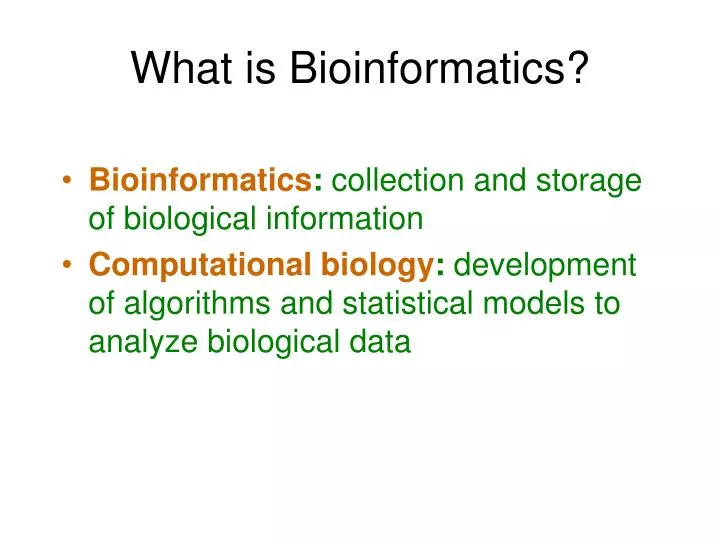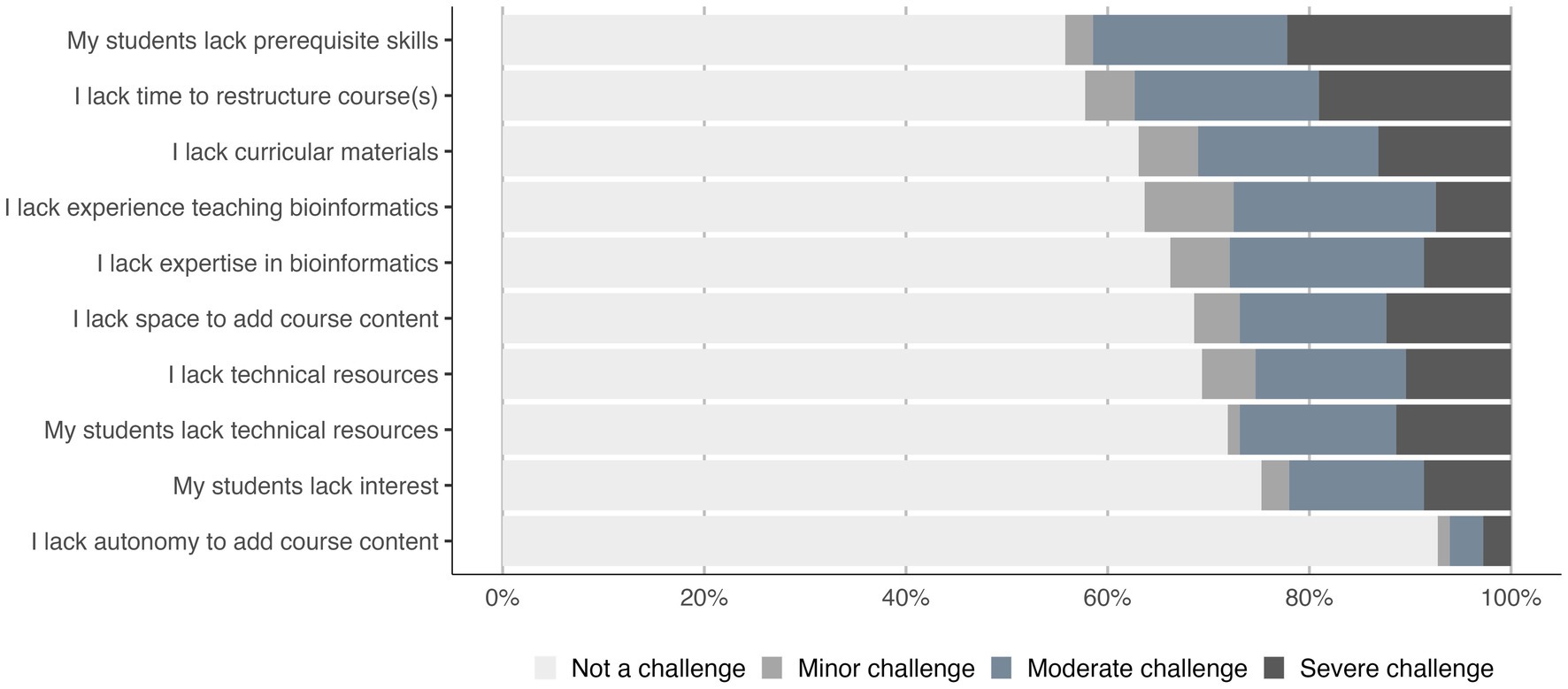Bioinformatics Tutor Things To Know Before You Get This
Bioinformatics Tutor Things To Know Before You Get This
Blog Article
The Main Principles Of Bioinformatics Tutor
Table of ContentsThings about Bioinformatics TutorThe Facts About Bioinformatics Tutor UncoveredThe Ultimate Guide To Bioinformatics TutorThe Best Guide To Bioinformatics TutorThe Facts About Bioinformatics Tutor Uncovered
Of the total amount participants associated with the training, 80% were trainees from public college organizations, while the remaining 20% originated from personal organizations. To get a certification of participation, pupils were called for to attend at the very least 90% of the overall training hours. As a result of this requirement, an impressive 95% of the participants efficiently acquired their certifications, having not just fulfilled the minimum attendance standards but additionally finished all designated activities throughout the training.During the height of the COVID-19 pandemic, especially in between June and August 2020, the task team was tasked with organizing specialized training in bioinformatics. This training was specifically focused on students from the study team Nucleus for Research in Applied Computing at the Federal University of Pará (UFRA) The adaptation to remote learning systems as a result of the pandemic produced a chance to check out brand-new teaching methods and digital tools that boosted both reach and efficiency.
To react to the growing need in the computing and life scientific researches fields, an advanced training course was presented in 2020 titled Intro to Maker Knowing. This course was designed to offer an obtainable yet thorough introduction of Artificial Knowledge strategies, especially as applied in bioinformatics. The program was performed over 3 months, from October to December 2020, and was delivered entirely online with the Google Meet system. This digital style enabled involvement from trainees throughout Brazil, much of whom might not have had the possibility to go to in-person sessions.
The 10-Minute Rule for Bioinformatics Tutor
A significant feature of this program was its focus on hands-on understanding. About 50% of the overall training hours were dedicated to practical activities where students built intelligent versions and applications in a variety of scientific domains, consisting of genes, molecular biology, and environmental information analysis. Extensively utilized structures and devices such as Spyder, Google Colab, Jupyter Notebooks, and Orange were incorporated into the coursework. These platforms made it possible for pupils to involve in real-time information manipulation, model training, and algorithm experimentation.
The program brought in 80 participants in total amount. Sixty of them were connected with various greater education and learning institutions in the state of Pará, while the staying twenty came from institutions found in 5 various other Brazilian states. This wide geographical representation highlighted the nationwide interest in bioinformatics and the growing demand for specialized abilities in this field. By introducing Artificial Intelligence in a practical and pertinent context, the effort offered to link the void between concept and real-world application, providing pupils with a strong structure for future research or employment in the field.
The training initiative formed part of a wider academic outreach effort recognized as the Bioinformatics when driving job. This project has, over the years, introduced dozens of trainees to the world of bioinformatics and computational biology. The occasions held under this umbrella initiative have actually happened across several areas and years, as summed up in Table 1 (Listing of events, places, years, and complete numbers of students and trainers)
One of one of the most amazing outcomes of the Bioinformatics when traveling campaign has been its payment to the development of decentralized research teams. Several of these groups, initially brought with each other by their engagement in training events, have actually considering that gone on to create independent scientific study in partnership with neighborhood academic institutions. The training not just fostered scientific thinking within the context of bioinformatics yet likewise triggered collective partnerships that prolonged past the training environment. These cooperations have actually led to enhanced regional clinical efficiency and contributed meaningfully to the advancement of the wider bioinformatics neighborhood in Brazil.
The 10-Second Trick For Bioinformatics Tutor
The exact same group, excluding IH and RR, likewise acted as tutors for the sensible training modules. Financing for the project was offered through the give 88887.200562/ 2018-00 from CAPES.
The Federal College of Pará's Workplace of Research study (PROPESP/UFPA) likewise gave monetary assistance, particularly for the production of the last manuscript. The writers declare no business or financial disputes of interest that could have influenced the study. Moreover, check here all analyses and opinions expressed in this short article are solely those of the writers and do not necessarily mirror those of their corresponding organizations, the publisher, editors, or reviewers entailed in the publication procedure.

All about Bioinformatics Tutor
From a pedagogical point of view, the training approach used in the training was deliberately interactive. Classes were conducted in a way that urged pupil participation and conversation, exceeding rote memorization to discover just how concepts are developed, applied in life, and checked in scholastic setups. The educational approach focused on nurturing both strong and struggling pupils, supplying personalized assistance, and structure confidence through continual mentorship and perseverance.

Each group, being composed of approximately 36 individuals, was sustained by three advisors-- most of whom were postdoctoral researchers with customized proficiency. These advisors not only helped make the group jobs however likewise facilitated their implementation, making sure that each study question was both pertinent and suitably challenging. The objective was to provide a biologically practical context that participants could discover via open-ended purposes and access to curated datasets.
For additional understandings into the more info here technique and end results of this project-based understanding method, readers are directed to S1 Text, that includes comprehensive summaries of the pedagogical framework, examination methods, and project themes made use of in the training sessions.
The Buzz on Bioinformatics Tutor
Of the total participants entailed in the training, 80% were trainees from public greater education establishments, while the remaining 20% came from private institutions. To certify for a certification of engagement, pupils were needed to attend at least 90% of the overall training hours. Notably, beyond the students who enlisted in the training sessions, 7 knowledgeable teachers took part in supplying the training courses, while 3 specialized research study teachers worked with the total training process. About 50% of the complete training hours were devoted to useful tasks where trainees developed intelligent models and applications in a range of clinical domains, consisting of genes, molecular biology, and ecological information analysis. The training not just fostered scientific reasoning within the context of bioinformatics however likewise stimulated joint relationships that expanded beyond the training atmosphere.
Report this page